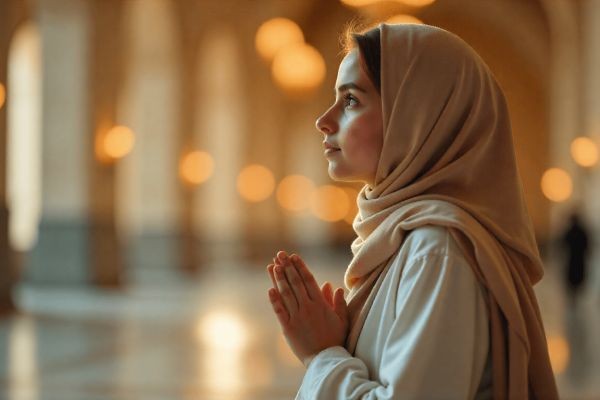Dhikr, the remembrance of Allah, is a fundamental Islamic practice that brings peace, focus, and spiritual growth. Through reciting Allah’s names, supplications, or Quranic verses, Muslims maintain a constant connection with their Creator. This article explores the importance, types, and benefits of dhikr in daily life.
What is Dhikr?
Dhikr involves invoking Allah’s names, praises, or Quranic verses, either silently or aloud, to keep the heart attuned to faith.
The Spiritual Role of Dhikr
Dhikr is a lifeline for the soul, as the Quran states: “Those who have believed and whose hearts are assured by the remembrance of Allah” (Quran 13:28). The islam article emphasizes dhikr’s ability to bring tranquility and strengthen faith.
- Heart Purification: Dhikr cleanses the heart from distractions and sins.
- Constant Awareness: It keeps Muslims mindful of Allah throughout the day.
- Protection: Regular dhikr shields against negative influences and spiritual harm.
Types of Dhikr
Dhikr can be performed in various forms, making it accessible in any situation.
Forms of Dhikr
- Verbal Dhikr: Reciting phrases like “SubhanAllah” (Glory be to Allah) or “Alhamdulillah” (Praise be to Allah).
- Silent Dhikr: Reflecting on Allah’s greatness in the heart during quiet moments.
- Collective Dhikr: Joining others in group recitations, often in mosques or gatherings.
Benefits of Dhikr
Dhikr offers spiritual, emotional, and psychological benefits, enhancing overall well-being.
Spiritual Growth
- Closeness to Allah: Dhikr strengthens the bond between the worshipper and Allah.
- Forgiveness of Sins: Regular remembrance seeks Allah’s mercy and forgiveness.
- Reward Accumulation: Even simple phrases carry immense spiritual rewards.
Emotional Stability
Dhikr calms the mind, reduces anxiety, and fosters a sense of peace and purpose.
Incorporating Dhikr into Daily Life
Dhikr can be seamlessly integrated into daily routines, making it a constant act of worship.
Practical Tips
- Morning and Evening Adhkar: Recite specific supplications at the start and end of the day.
- During Commutes: Use travel time to recite dhikr silently or listen to Quranic recitations.
- Post-Salah Dhikr: Recite prescribed phrases like “Astaghfirullah” after prayers.
- Use Technology: Apps or counters can help track dhikr repetitions.
Dhikr During Challenges
In times of hardship, dhikr provides comfort and resilience, helping Muslims navigate difficulties.
Facing Trials
- Patience Through Dhikr: Reciting “HasbunAllah wa ni’mal wakeel” (Allah is sufficient for us) during trials fosters trust.
- Stress Relief: Dhikr soothes the heart during moments of anxiety or grief.
- Focus on Allah: It redirects attention from worldly worries to divine mercy.
Common Mistakes in Dhikr
To maximize the benefits of dhikr, Muslims should avoid common pitfalls.
Avoiding Errors
- Lack of Sincerity: Dhikr should be performed with focus and intention, not mechanically.
- Neglecting Pronunciation: Correct recitation ensures the full spiritual benefit.
- Inconsistency: Regular dhikr, even in small amounts, is more effective than sporadic efforts.
FAQs
What is the best time for dhikr?
Dhikr can be done anytime, but morning, evening, and post-Salah times are especially rewarding.
Can dhikr be done silently?
Yes, silent dhikr in the heart is valid and effective, especially in busy or public settings.
How does dhikr benefit mental health?
Dhikr promotes mindfulness, reduces stress, and fosters emotional stability through spiritual focus.
Are there specific phrases for dhikr?
Yes, phrases like “SubhanAllah,” “Alhamdulillah,” and “Allahu Akbar” are commonly used.
Can children practice dhikr?
Yes, teaching children simple dhikr phrases fosters faith and discipline from a young age.
Why is dhikr emphasized in Islam?
Dhikr keeps Muslims connected to Allah, purifies the heart, and brings peace and reward.
Dhikr is a simple yet powerful practice that transforms daily life, fostering peace, faith, and resilience.

